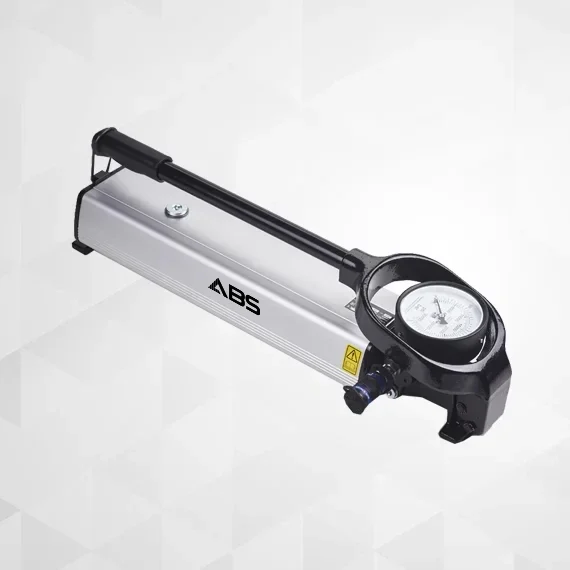Hydraulic Hand Tensioning Pump
The TensionPro two-stage hydraulic hand pumps are furnished with an included pressure gauge, ensuring precise pressure management for users. The gauge is seamlessly affixed to the pump and safeguarded by a purpose-designed pump lever. The dual-stage operation streamlines pump usage, enabling swift and effortless attainment of working pressure for the associated tensioner or equipment. Their sturdy construction guarantees reliable performance even amidst rough handling and challenging operational scenarios. Distinguished by their durability, these pumps are excellently adapted to withstand demanding conditions present in rugged environments such as workshops, as well as other mobile and industrial settings.
Features
- Light and strong aluminium tank
- 700, 1000, 1500 and 2500 bar options
- Dual scale psi/bar 100mm gauge
- Single scale MPa gauge option
- Fitted with Quick Connector outlet
- Mounting holes for fixed installations
- Pressure tested and certified


